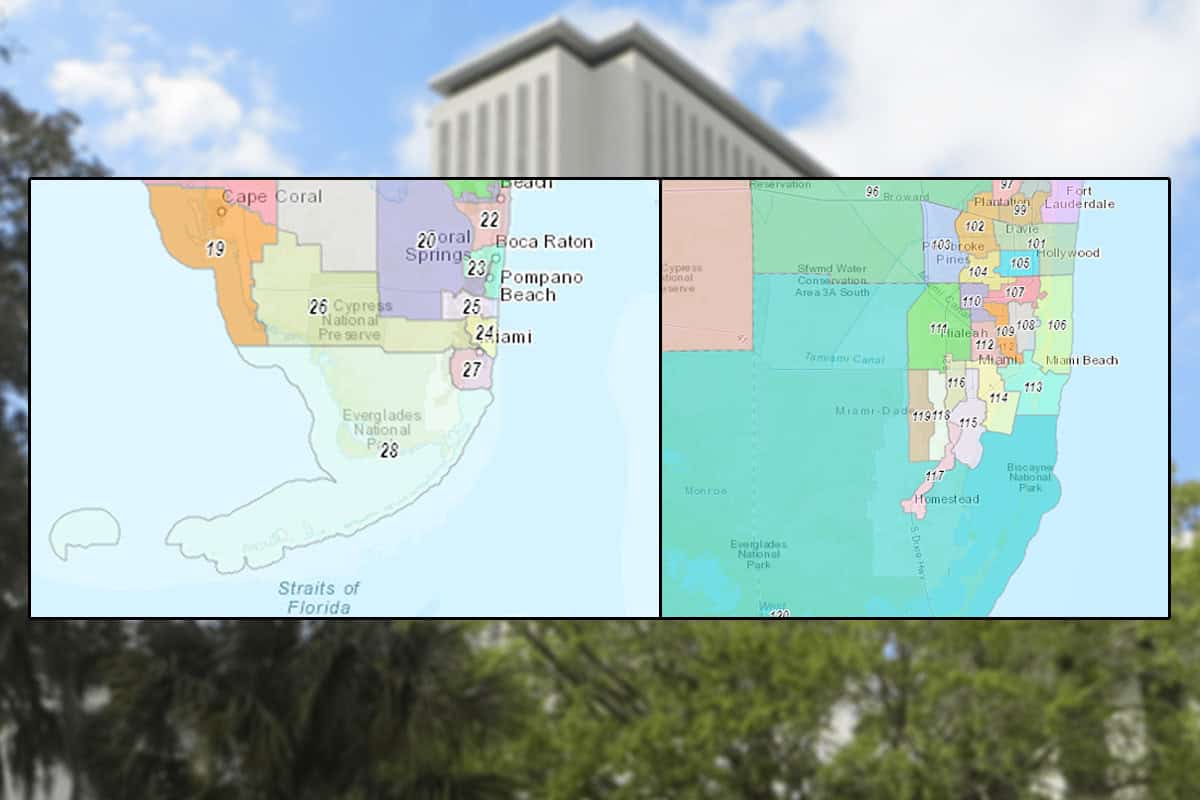Groups sue Florida over ‘racially’ drawn congressional and state house districts

MIAMI – Activist organizations sued Florida this week, alleging 14th Amendment violations in drawing multiple southern Florida congressional and state house districts.
It was brought by Cubanos Pa’lante, Engage Miami, the American Civil Liberties Union Club at Florida International University, along with “five local residents” in the U.S. District Court for the Southern District of Florida.
Districts the crux of the suit are the following, all represented by Republicans:
- FL-19: Byron Donalds
- FL-26: Mario Diaz-Balart
- FL-27: Maria Elvira Salazar
- FL-28: Carlos A. Gimenez
- HD 112: Alex Rizo
- HD 113: Vicki Lopez
- HD 114: Demi Busatta Cabrera
- HD 115: Alina Garcia
- HD 116: Daniel Perez
- HD 118: Mike Redondo
- HD 119: Juan Carlos Porras
Donalds’ district is located in Southwest Florida, in the Fort Myers and Naples area. The other U.S. House districts are located around Miami-Dade, Collier and Monroe County at the southern portion of Florida.
All of the Florida House districts are located in Miami-Dade County.
“[Lawmakers connected] disparate neighborhoods, dividing established communities, and creating noncompact shapes with an overriding racial goal,” the ACLU of Florida said. “This racial gerrymandering, according to the lawsuit, undermines fair representation and cannot be justified by the Voting Rights Act or any other compelling interest.”
The suit’s filers also said that lawmakers ignored the “diverse nature” of the region’s Hispanic/Latino community, the group continued.
Gerrymandering is when a district is drawn to favor one party or group of people, and/or to disadvantage one party or group of people. Florida’s maps have been upheld in court since they were approved after the 2020 Census during the 2022 Legislative Session.
At the federal level, the districts represented by Donalds, Diaz-Balart and Gimenez are not competitive, each candidate getting over 60% of the vote. Meanwhile, Salazar’s southern Florida district was slightly more competitive, but still not close, where she gained around 57% of the vote.
Some of the state house districts in question are competitive: Lopez won District 113 by 2% in 2022, and Redondo won District 118 by 6% in 2023.
Busatta-Cabrera won by around 13%, Garcia by 17%, Porras by 29%, while Rizo and Perez ran unopposed.



